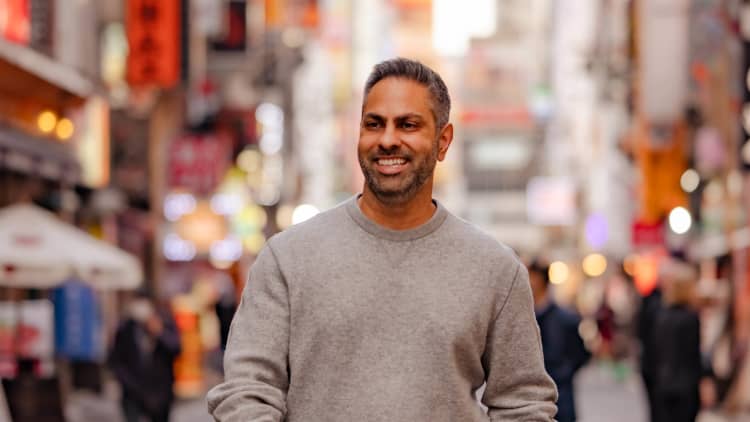A Roth individual retirement account can be a great option for those who want to start investing for the future, Tori Dunlap, self-made millionaire and founder of financial education platform Her First $100k, tells CNBC Make It.
However, there's a common mistake she sees many beginners make: not actually investing their money.
"If you just put your money into something like a Roth IRA or a 401(k), it's in financial purgatory," she says. "It's just sitting there as cash ready for you to invest. You are not invested."
Investors often don't realize that this type of investing is a two-step process, she says.
After setting up your Roth IRA with an online broker and making contributions to the account, investors need to actually invest that money in something, such as an index fund or a target-date fund.
"It's like a gift card," Dunlap explains. "You put money on a gift card and then you have to go buy things."
What to know about Roth IRAs
Before you get to the investing step, you need to open an IRA.
When choosing where to open your IRA, you'll want to consider a couple of things, says Ramit Sethi, self-made millionaire and star of Netflix's "How to Get Rich."
- Fees and opening minimum: Always compare minimum contribution requirements and fees before opening an investment account. Although many companies require a minimum of $1,000 or $3,000 to open an IRA, others let you begin with less, says Sethi.
- Automation: "You want to invest your money without thinking too much about it," Sethi says. One way to do that is by setting up automatic withdrawals from your checking account so that you don't forget to put funds in your IRA.
Unlike with a traditional IRA or 401(k), Roth contributions are made with after-tax dollars, which means you've already paid taxes on the money you're contributing to the account. This also means you're able to access the money you've contributed at any time without penalty.
In 2023, you can contribute up to $6,500 to your Roth IRA, as long as you meet the income requirements. If you're over 50, you can make an additional $1,000 catch-up contribution.
However, any gains your contribution has made may be subject to penalties and taxes if withdrawn before age 59 ½, unless you qualify for an exception. Additionally, your account must be open for five or more years in order to take out earnings tax-free, regardless of age.
Why it's important to start investing sooner rather than later
Whether through an IRA or other investment vehicle, getting started investing sooner rather than later is key to being able to take full advantage of compound interest.
Compound interest helps your money grow faster than simple interest because you not only earn interest on the amount you contribute, but on any interest earned as well.
Say you invest $3,000 and earn an annualized return of 6%. After a year, your investment would have grown to $3,180 — your original investment, plus 6% interest.
The next year, you wouldn't just earn interest on the original $3,000 you contributed, but on the entire $3,180. That would bring your balance after year two to $3,370.80.
The above example doesn't take additional ongoing contributions into account. CNBC Make It's compound interest calculator can give you an idea of how your money could build over time based on you initial deposit, your annual or monthly contributions, interest rate and how long you give it to grow.
Correction: This story has been updated to reflect the correct spelling of Tori Dunlap's name.
DON'T MISS: Want to be smarter and more successful with your money, work & life? Sign up for our new newsletter!



